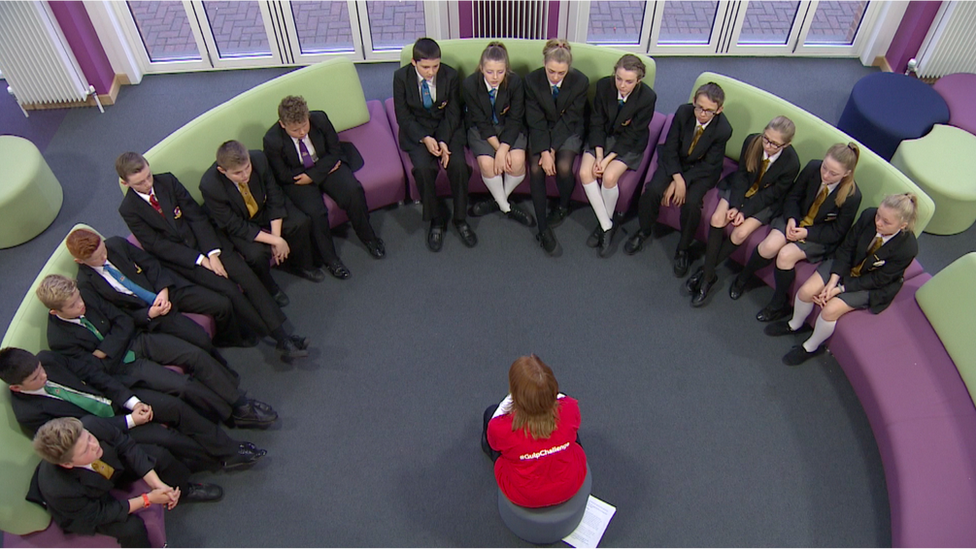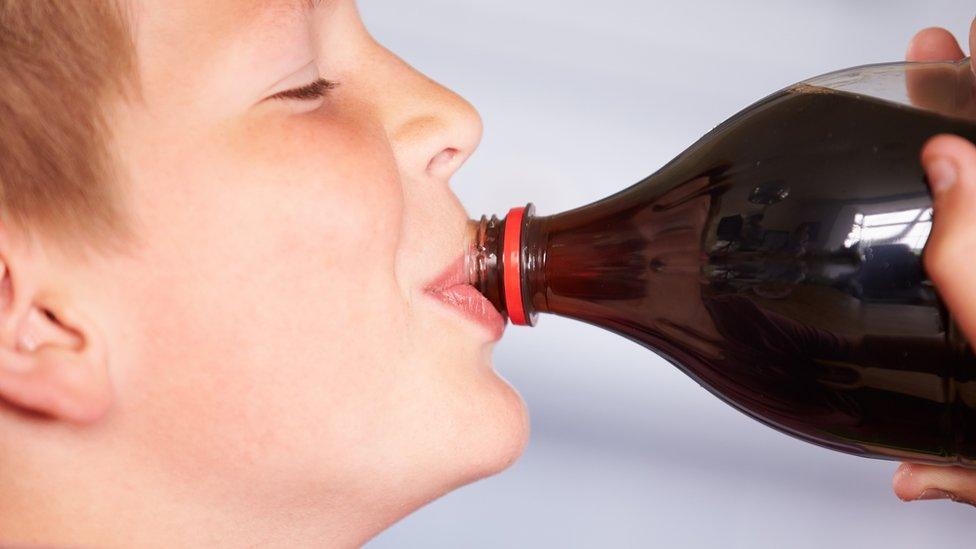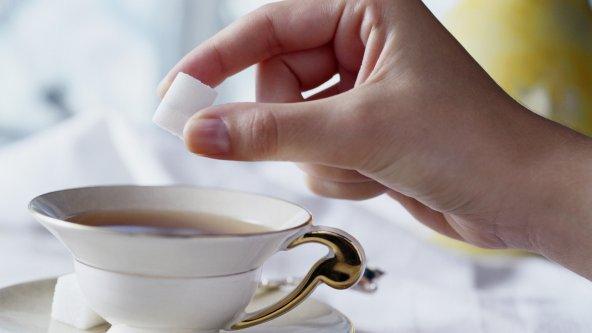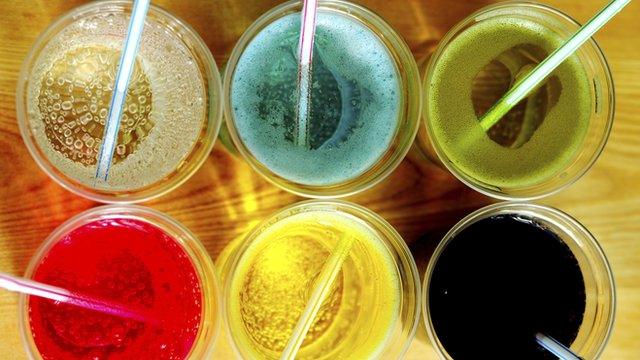Pupils reduce sugar intake by giving up fizzy drinks
- Published
How did the school pupils in Blackpool get on in the challenge?
At Blackpool's St George's School, 15 pupils from Year 8 are sitting in a semi-circle as dental nurse Helen Kellett shows them some popular brands of fizzy drink.
"One of these drinks has 20 teaspoons of sugar hiding in the can," says Ms Kellett, who goes on to tell the group why sugar-laden soft drinks are particularly bad for the teeth.
Apparently, it is to do with the way we sip them, which means they stay "high in the palate" and have a greater chance of causing tooth decay.
They have already heard about the dangers of diabetes and obesity, all part of a pitch to harden their resolve to complete the 21-day Gulp (Give Up Loving Pop)Challenge.
But for some of the 12- and 13-year-olds, the days ahead threaten to be quite tough, because these are young people who really enjoy their fizzy drinks.
"I love fizzy pop," says one pupil. "I drink near enough one can per day."
"I have a bottle of pop with my tea," says her friend.
"I usually have one at lunch as well, so I usually have more than I'm supposed to."
That is certainly true, as for most people over the age of 11, the recommended daily amount of sugar is 30g (1oz).
Some of the most popular soft drinks contain at least that amount per can, if not more.

Fifteen pupils from St George's School, in Blackpool, took the Gulp Challenge for 21 days
Blackpool's sugar rush
In Blackpool, there is a particular issue, because more than a third of 10- and 11-year-olds in the town are overweight or obese - some of the highest rates in England.
And young people are also the biggest consumers of fizzy drinks.
It's a worry for Blackpool's director of public health, Dr Arif Rajpura.
"There is simply too much sugar in our diet, and this is contributing significantly to our obesity epidemic," Dr Rajpura says.
"So what we are trying to do is reduce the amount of sugar in our diet.
"Sugar in fizzy drinks is empty calories, it just adds calories, unnecessary calories, to our diet and what we're trying to do is cut that out."
No pop
Research suggests it takes 21 days to kick a habit or wean yourself off an addiction, which is how many of the group see sugar and fizzy drinks.
"It's like I've drunk it since I was young," says Shae, who drinks two cans a day.
"I don't know if it's going to leave me alone when I'm doing this challenge.
"It's going to be hard, but it's going to make me healthier as well."

Sugar statistics
Assuming there are 36g of sugar in a drink - the same amount found in one of the UK's most popular colas - each pupil would "save" 756g of extra sugar over the 21 days.
For the whole group, that amounts to 11.3kg of sugar.
Or to put it another way, they will have avoided putting an extra 45,360 calories into their bodies.

21 days later
Three weeks later, when they are asked who managed to give up for the full 21 days, all but three hands go up - an 80% success rate.
Some say it was tough, some found it easier, but none says they are now going to give up fizzy drinks for good.
The school's senior assistant head teacher, Chris Ibbotson, says the timeframe has been too short to say if it has made a long-term difference, but she knows that more work will be needed.
"We've got influences from advertising and marketing that overwhelm adults as well as children," she says.
"It's a hard nut to crack.
"We also have to talk to parents about what they think, because they've been brought up in a similar way to the children, in using sugar as a reward, using sugar as a quick fix. And we do have to change."
- Published30 November 2015

- Published17 July 2015

- Published22 July 2015
